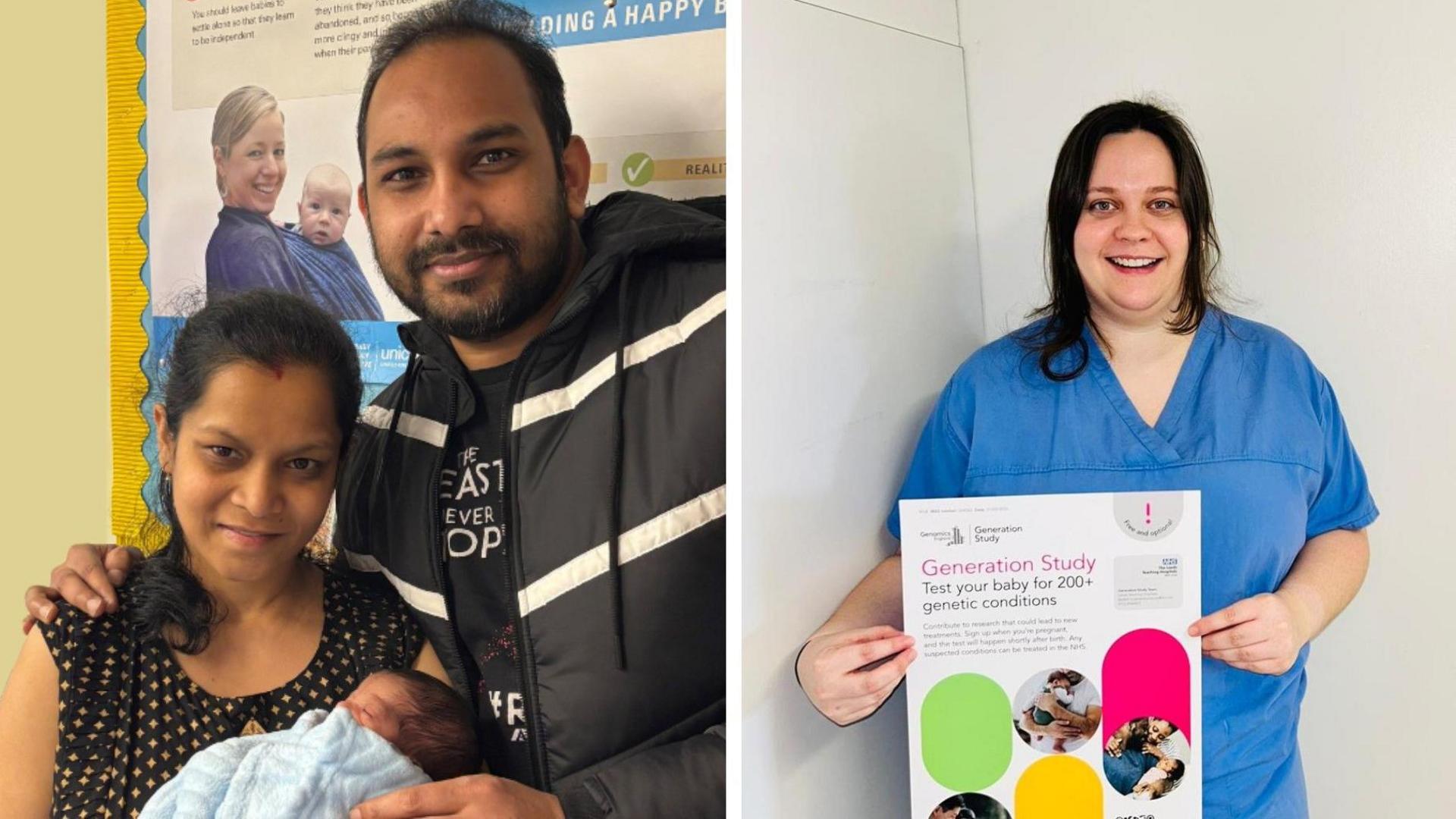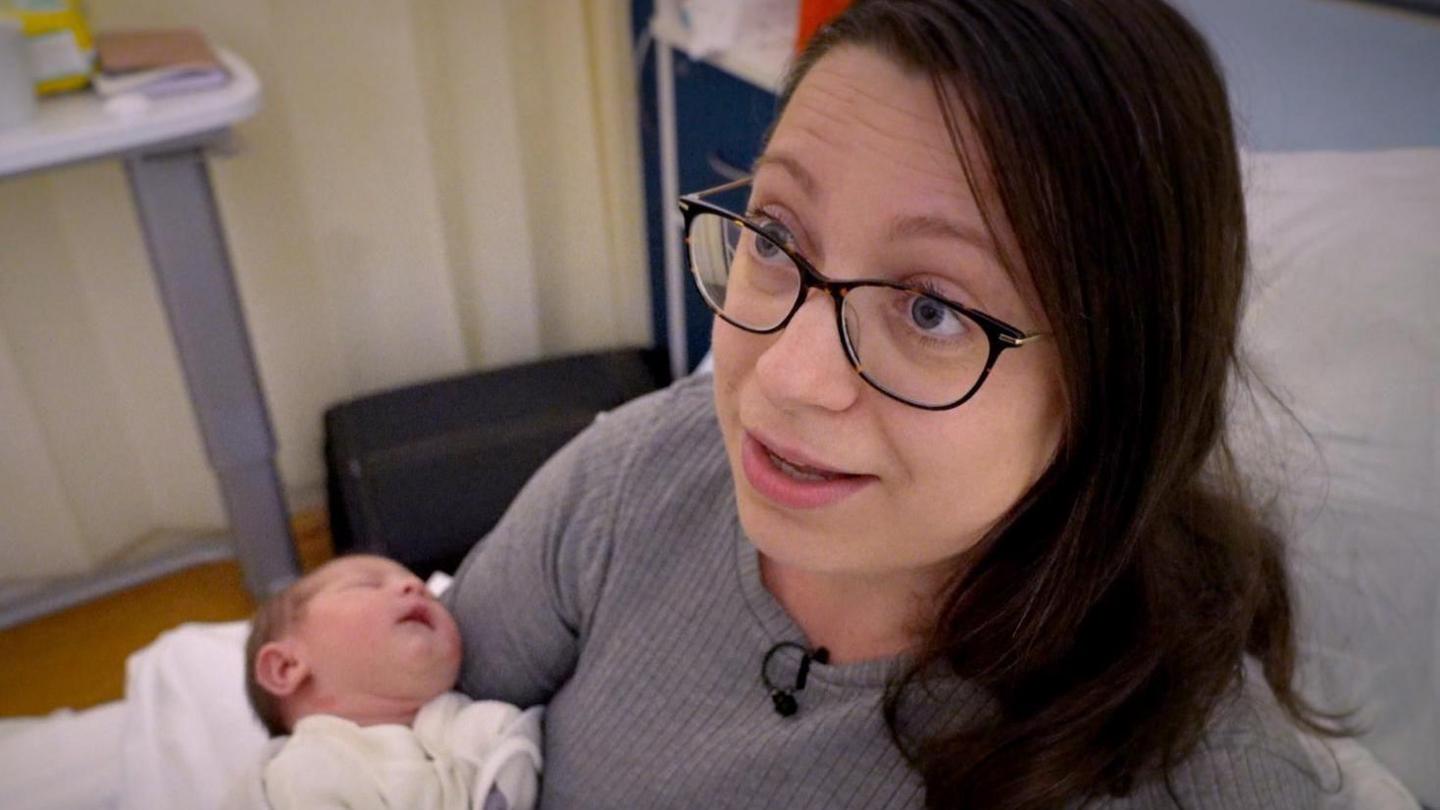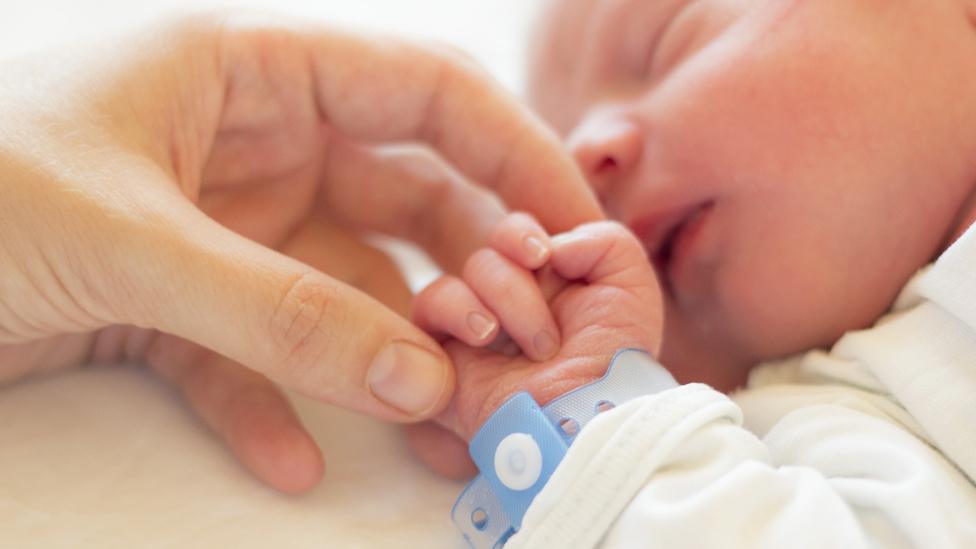Genetic study to test babies for 200 conditions

Mum Sonalika and midwife Georgie are some of the first people involved in the study
- Published
A hospital has begun testing hundreds of babies for genetic conditions as part of a "world-leading" study into rare illnesses.
Midwife Georgie, who is expecting her first baby in April, was the first person in Leeds to be recruited for the genetic study and took the first sample from a baby.
The study will test babies for more than 200 rare genetic conditions and could enable people to benefit from earlier diagnosis and treatments.
Georgie said having the test would "hopefully give me peace of mind when my baby is born and help future generations too".
The first baby to have a cord blood sample taken at Leeds Teaching Hospitals was Suvansh, who was born on 4 December.
Suvansh's mum Sonalika said she signed up to the study to give her baby a longer, healthier life.
She said: "We are very grateful to midwife Georgie and all the maternity team for their care and kindness after Suvansh's early arrival."
In the study, whole genome sequencing is performed using blood samples, which are usually taken from the baby's umbilical cord shortly after birth.
It is hoped the research, led by Genomics England in partnership with NHS England, will identify conditions in asymptomatic babies.
Expectant parents at Leeds Teaching Hospitals will be informed about the study during pregnancy and can choose whether to take part.
The baby's results are reviewed by NHS genomic scientists, with the aim of telling parents in 28 days if a condition is suspected or in a few months if no conditions are suspected.
Genomics England chief executive officer Dr Rich Scott said the study would support broader healthcare research.
He said: "The launch of the Generation Study is a pivotal moment as we look to develop evidence on whether genomic newborn screening should be offered to all children – to do more for the thousands of children born every year in the UK with a treatable genetic condition.
"Children with these conditions often go years without receiving a diagnosis. Cutting this time would mean earlier access to what can be life-changing treatment.
Listen to highlights from West Yorkshire on BBC Sounds, catch up with the latest episode of Look North or tell us a story you think we should be covering here, external.
- Published3 October 2024

- Published13 December 2022
